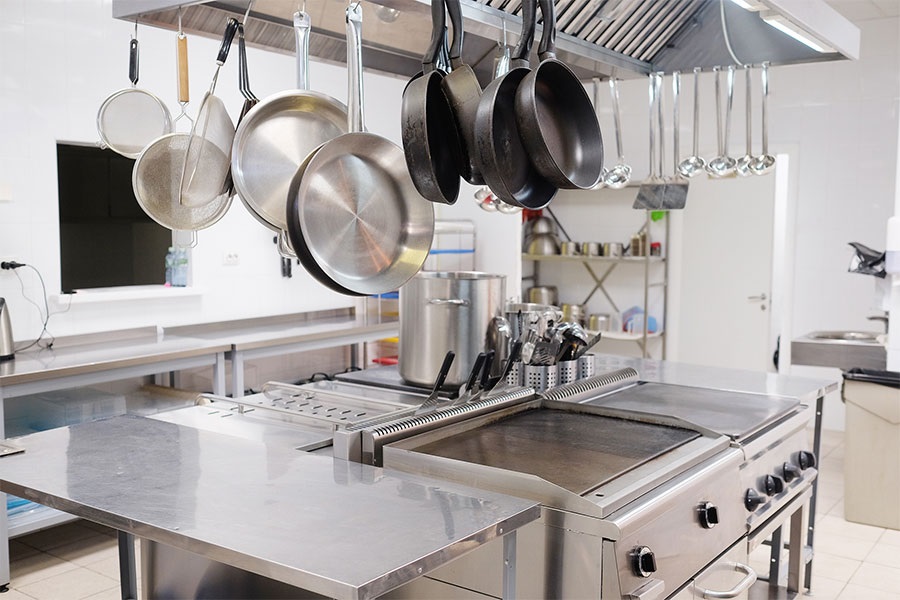Setting up or renovating a commercial kitchen requires significant planning and investment when it comes to procuring the right equipment. From ovens, refrigerators and dishwashers to specialty gear like food processors and coffee machines, relying on an experienced commercial kitchen equipment supplier is key to outfitting a workspace efficiently while meeting your budget.
Essentials of Sourcing Commercial Kitchen Equipment from the Right Supplier
When scouting for equipment, keep these tips in mind to identify and select the best partner for your foodservice establishment:
Assessing Your Equipment Needs
Taking stock of your menu, service style, output requirements and available space should be the first step. This helps create a checklist of equipment types needed and their optimal capacity, dimensions and other specifications. Involve chefs and managers during walkthroughs of the site to get their inputs.
Highlight specialized equipment like smokers, pasta makers or noodle pullers that might be essential for your offerings. Based on the hours of operation and projected sales, calculate equipment capacity needed for a breakfast rush versus a steady lunch service, for example.
Having a detailed list makes it easier for suppliers to recommend the right models and pieces suited to your workflow and operational needs.
Range of Equipment Offered
Look for a one-stop supplier that can source and supply the full gamut of commercial kitchen equipment across cooking, refrigeration, food prep, storage, dishwashing and more. Having a single reliable point of contact makes procurement and after-sales servicing simpler. Reputable suppliers will stock equipment from quality global brands alongside their own line of products.
New versus Used Equipment
Equipment condition impacts functionality, lifespan and maintenance costs. While brand new equipment generally has the latest features and technology, high-quality reconditioned pieces can offer value. Reliable suppliers refurbish used equipment thoroughly and provide warranties. Evaluate cost trade-offs carefully for budget-sensitive purchases like colossalMixers or specialized machines.
After-sales Service and Warranties
Choose a supplier who not just delivers and installs the equipment, but also handles after-order support for maintenance, technical issues, spare parts and performance optimization. Warranty tenure and scope also varies among commercial grade equipment. Having an authorized service partner alleviates hassles and ensures prompt repairs if problems arise.
Compliant and Certified Equipment
Double check that the equipment models adhere to necessary compliances like NSF food safety standards, UL/ETL electrical certifications, Energy Star ratings etc. based on your local regulations. Suppliers must provide documentation to confirm valid compliance. This gives peace of mind and assurance about equipment safety and performance for inspectors.
Customization and Modifications
Standard equipment may not always suit unique needs like a smaller footprint or non-standard power supply. Discuss any custom modifications or accessories required with your supplier in advance. Qualified suppliers can alter cabinetry dimensions, add power configurations and make other changes to tailor the equipment to your space and setup.
Business Permits and Licenses
In many jurisdictions, suppliers require business permits or licenses for installing and servicing commercial kitchen equipment due to safety and compliance regulations. Choosing a properly certified and legally compliant commercial kitchen equipment supplier ensures you avoid any regulatory issues during inspections for your food service permit approval.
Budget Considerations
Create an equipment budget based on capital and operating costs. Quotations from different suppliers can then be compared based on pricing. However, also consider warranty value, energy efficiency, after-sales service and lifespan value which impact the total cost of ownership. Sophisticated equipment also improves productivity. The right supplier will help select equipment that balances performance with pricing.
Choosing the ideal equipment and the perfect supplier partner is a multi-faceted decision based on the unique needs of a foodservice establishment. Taking the time to evaluate options thoroughly ensures you get the maximum return on investment from the commercial kitchen assets.

